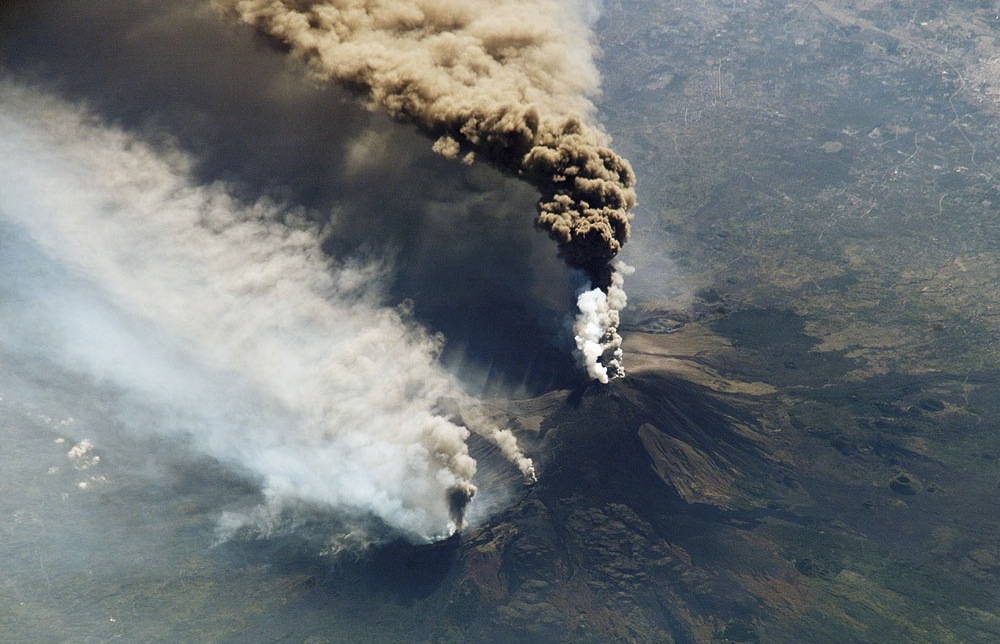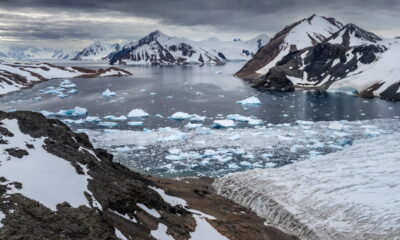Science
Major Study Finds Geoengineering Lacks Viable Solutions for Climate Change

A comprehensive study conducted by leading ice and climate researchers has concluded that prominent geoengineering concepts intended to protect the Earth’s polar ice caps are unlikely to succeed. Published on March 5, 2024, this peer-reviewed research highlights the potential dangers and unintended consequences associated with various speculative engineering ideas, such as dispersing particles in the atmosphere to dim sunlight or attempting to refreeze ice sheets.
The researchers examined several untested geoengineering concepts, which have gained attention largely through public relations campaigns. These include the application of reflective particles over newly formed sea ice to enhance its durability, constructing large ocean-bottom barriers to redirect warmer water away from ice shelves, and the controversial idea of intentionally releasing sulfur or other reflective particles into the upper atmosphere.
Lead author Martin Siegert, a glaciologist at the University of Exeter, emphasized that the study’s findings challenge the prevailing promotional narrative surrounding geoengineering. The research team, which included 40 experts from various fields such as oceanography, marine biology, and atmospheric science, aimed to provide a holistic understanding of the challenges these projects face.
Siegert remarked, “Most geoengineering ideas are climate Band-Aids at best. They only address symptoms, but don’t tackle the root cause of the problem—greenhouse gas emissions.” He noted that while some of these concepts might seem promising, they often oversimplify the complexity of climate intervention.
The research identified crucial questions for assessing the feasibility of geoengineering solutions. Among these were whether the proposed ideas would function effectively in practice and what risks—both evident and unforeseen—might accompany large-scale climatic interventions. Financial considerations are also significant, as the projects could demand tens or even hundreds of billions of dollars.
In terms of scale and timing, any geoengineering initiative must be capable of rapid deployment within the next few decades to meet global climate goals. Siegert cautioned against fostering misleading optimism by suggesting that climate change can be addressed without significant reductions in carbon emissions. He highlighted the unique challenges presented by polar regions, where harsh conditions and delicate ecosystems complicate intervention efforts. Additionally, international treaties designed to protect these environments could further impede large-scale projects.
Co-author James Kirkham, chief science advisor for a coalition of over 20 countries formed at the COP27 UN climate talks in Egypt, expressed concern over the growing acceptance of certain geoengineering proposals among policymakers. He noted that some presentations at the recent COP28 conference in Dubai seemed to misrepresent the backing of the broader research community.
“The thing that really wound us up was that they were pitching these fringe ideas as if they had the backing of the entire research community,” Kirkham stated. His assessment indicates that no current geoengineering proposal meets a rigorous, objective evaluation for practical application in the near future.
While many geoengineering concepts have been largely disregarded by mainstream climate scientists, recent years have seen an influx of funding for these initiatives, accompanied by sophisticated public relations strategies aimed at promoting them. Kirkham pointed out that this shift threatens to distort the reality of climate solutions, drawing attention away from the pressing need to cut emissions.
The study serves as a critical reminder of the complexities inherent in addressing climate change, underscoring the necessity of focusing on proven strategies rather than untested and potentially harmful interventions. As the discourse on climate action evolves, it remains essential to prioritize solutions that directly target the root causes of global warming.
-

 World4 months ago
World4 months agoScientists Unearth Ancient Antarctic Ice to Unlock Climate Secrets
-

 Entertainment4 months ago
Entertainment4 months agoTrump and McCormick to Announce $70 Billion Energy Investments
-

 Lifestyle4 months ago
Lifestyle4 months agoTransLink Launches Food Truck Program to Boost Revenue in Vancouver
-

 Science4 months ago
Science4 months agoFour Astronauts Return to Earth After International Space Station Mission
-

 Technology2 months ago
Technology2 months agoApple Notes Enhances Functionality with Markdown Support in macOS 26
-

 Top Stories3 weeks ago
Top Stories3 weeks agoUrgent Update: Fatal Crash on Highway 99 Claims Life of Pitt Meadows Man
-

 Sports4 months ago
Sports4 months agoSearch Underway for Missing Hunter Amid Hokkaido Bear Emergency
-

 Politics3 months ago
Politics3 months agoUkrainian Tennis Star Elina Svitolina Faces Death Threats Online
-

 Technology4 months ago
Technology4 months agoFrosthaven Launches Early Access on July 31, 2025
-

 Politics4 months ago
Politics4 months agoCarney Engages First Nations Leaders at Development Law Summit
-

 Entertainment4 months ago
Entertainment4 months agoCalgary Theatre Troupe Revives Magic at Winnipeg Fringe Festival
-

 Top Stories1 week ago
Top Stories1 week agoFamily Remembers Beverley Rowbotham 25 Years After Murder





















